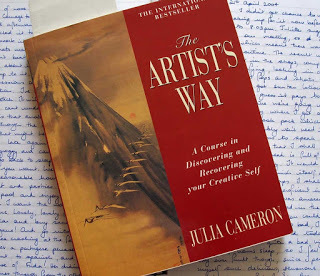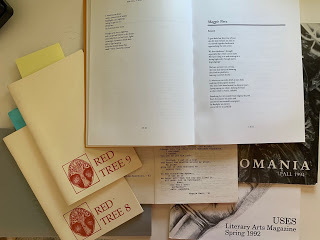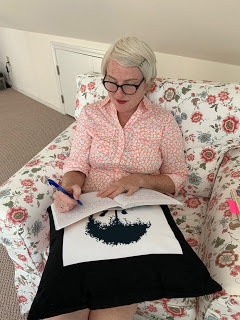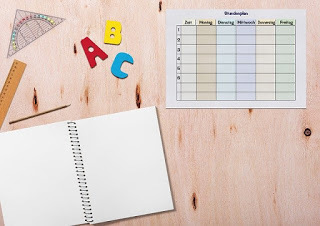Gill James's Blog, page 6
July 20, 2020
Reviews please


From time to time I’ll make an appeal here for a review. Reviews are so important for writers. I’ve actually taken the decision to review every single book I read. Often it’ll just be a two- line review. It’s not too onerous at all. I’ve not yet had to give a terrible review - I guess that’s because I tend to read the books I’m likely to like. I’m taking the view that if I want people to review my books it’s only fair that I should review others’ books. Besides, if I’m reviewing everything I’m reading, then my reviews are legitimate; I’m not just doing mates favours.
Here's the blurb:
"Girl in a Smart Uniform" is the third book in the Schellberg Cycle, a collection of novels inspired by a bundle of photocopied letters that arrived at a small cottage in Wales in 1979. The letters give us first-hand insights into what life was like growing up in Germany in the 1930s and 1940s.
It is the most fictional of the stories to date, though some characters, familiar to those who have read the first two books, appear again here. Clara Lehrs, Karl Schubert and Dr Kühn really existed. We have a few, a very few, verifiable facts about them. The rest we have had to find out by repeating some of their experiences and by using the careful writer's imagination.
Gisela adores her brother Bear, her gorgeous BDM uniform, and her little half-brother Jens. She does her best to be a good German citizen, and is keen to help restore Germany to its former glory. She becomes a competent and respected BDM leader. But life begins to turn sour. Her oldest brother Kurt can be violent, she soon realises that she is different from other girls, she feels uncomfortable around her mother’s new lover, and there is something not quite right about Jens. It becomes more and more difficult to be the perfect German young woman.
We know that BDM girls set fire to the house in Schellberg Street but got the children out first. This story seeks to explain what motivated the girls to do that, and what happened to them afterwards.
So, if the book mentioned above appeals, I’m willing to supply a PDF or mobi-file for review. Just contact me via the form here.
Published on July 20, 2020 09:37
July 16, 2020
Girl in a Smart Uniform


It all started from one of those situations where truth was stranger than fiction. In fact the truth was so strange that I eventually decided to self—publish all of my books in the Schellberg Cycle. Most publishers thought it was just too far-fetched: Renate Edler didn’t realise that she was Jewish until a few days before she came to England on the Kindertransport. “How could she not know she was Jewish?” they cried. Well, she just didn’t.
Something else very odd happened at about that time. Her grandmother, the Jewish connection, but long since converted to Lutheranism, sheltered a school for the disabled children in her cellar. It survived there pretty well undisturbed and after the war ended continued much as it had before the Nazi regime arose. In fact it carried on in the house and only moved out when it got too big for this residential property We know that the equivalent of Dad’s Army were asked to destroy it. They refused and the Hitler Youth were charged with the task. They too refused so it was left to the girls. But for some reason they decided to let the children out first. Thank goodness.
Girl in a Smart Uniform attempts to work out how that may have happened. It also looks at what motivated young women to become good BDM members (the girls’ version of the Hitler Youth).
It does contain some people who really lived. Yet they are background figures here. This it to date the most fictional of my stories in The Schellberg Cycle. You can read more about them here.
I find this an interesting process. It’s a little like acting. You have to get into the characters’ heads and work out what they would do in these circumstances. I suppose we might call it imagination. I found this useful at many stages in this project. There are primary resources, repeated experience and this very useful tool: the imagination. It’s as essential for writing historical fiction as it is for fantasy.
Published on July 16, 2020 07:49
July 13, 2020
Stages of Revision 14: Get rid of clichés

 The effectiveness and the ineptitude of clichés There is one thing that is very annoying about clichés; they are very good. They are extremely apt for what they’re trying to describe and they’re hard to beat. The problem is, though, that they become tired and can make your writing seem dull, even though the cliché was spot on in the first place. So, you need to go about it like a bull in a china shop, avoid them like the plague, and don’t get me wrong, I think clichés have their place.Do you see what I mean?Nothing can do quite as much damage as that bull rattling around between the plates and dishes, can it? Is there anything you’d need to avoid more than the plague? (Covid 19 perhaps?) and what better warning for your reader than that they may be about to misinterpret you? (Really? Isn’t it your job to make yourself clear?) Get to the heart of the matterYou can often get underneath the cliché and work out what’s really going on and you may find that the cliché wasn’t as effective as you thought. You may come up with other similes and metaphors. Perhaps what’s happening is actually more like a toad trapped under a saucepan, or someone is procrastinating because they can’t face doing their tax return, or your character steps out of the story to tell you something unexpected about themselves. Here are some real challenges for you. Try to describe the following without resorting to cliché:· What chocolate tastes like· What orange peel looks like· What rain feels like on your skin · What church bells sound like Believe me, these are quite tricky. When there is nothing that works as well as the clichéThen perhaps you can subvert it a little. Replace your bull with an equally rumbustious animal and put him in a named store. Avoid your clichés as you would another nasty disease or situation. Anticipate your readers’ misinterpretation in another way. Borrow from other languages If you speak another language you may have a real advantage here. What is a cliché in one language isn’t in another. It will seem fresher in the other language. Spanish for example is peppered with them. Here are a couple of rather interesting ones: It had always pleased him to remain superior (or on top of!) his mother. She had eaten the soup before midday. (Had sex before marriage and got pregnant) And here are a few from German.I don’t want to tread on your tie. Don’t put your mustard on my sausage. It’s all sausage to me. (I don’t care)Delightfully, when there is one of those sudden inexplicable silences, the French say “It’s an angel passing by.”
The effectiveness and the ineptitude of clichés There is one thing that is very annoying about clichés; they are very good. They are extremely apt for what they’re trying to describe and they’re hard to beat. The problem is, though, that they become tired and can make your writing seem dull, even though the cliché was spot on in the first place. So, you need to go about it like a bull in a china shop, avoid them like the plague, and don’t get me wrong, I think clichés have their place.Do you see what I mean?Nothing can do quite as much damage as that bull rattling around between the plates and dishes, can it? Is there anything you’d need to avoid more than the plague? (Covid 19 perhaps?) and what better warning for your reader than that they may be about to misinterpret you? (Really? Isn’t it your job to make yourself clear?) Get to the heart of the matterYou can often get underneath the cliché and work out what’s really going on and you may find that the cliché wasn’t as effective as you thought. You may come up with other similes and metaphors. Perhaps what’s happening is actually more like a toad trapped under a saucepan, or someone is procrastinating because they can’t face doing their tax return, or your character steps out of the story to tell you something unexpected about themselves. Here are some real challenges for you. Try to describe the following without resorting to cliché:· What chocolate tastes like· What orange peel looks like· What rain feels like on your skin · What church bells sound like Believe me, these are quite tricky. When there is nothing that works as well as the clichéThen perhaps you can subvert it a little. Replace your bull with an equally rumbustious animal and put him in a named store. Avoid your clichés as you would another nasty disease or situation. Anticipate your readers’ misinterpretation in another way. Borrow from other languages If you speak another language you may have a real advantage here. What is a cliché in one language isn’t in another. It will seem fresher in the other language. Spanish for example is peppered with them. Here are a couple of rather interesting ones: It had always pleased him to remain superior (or on top of!) his mother. She had eaten the soup before midday. (Had sex before marriage and got pregnant) And here are a few from German.I don’t want to tread on your tie. Don’t put your mustard on my sausage. It’s all sausage to me. (I don’t care)Delightfully, when there is one of those sudden inexplicable silences, the French say “It’s an angel passing by.” Images by Michelle Maria and ArtTower from Pixabay
Published on July 13, 2020 00:52
July 7, 2020
Your Inner Artist Needs You by Maggie Nerz Iribarne
Today I have on my blog Maggie Nerz Iribarne who tells us abut her writing process and about creating oneself as a writer.
Do you realize you are an artist? Julia Cameron, the author of the book, The Artist’s Way, tells us that our inner artist is a child that needs daily attention and recognition. My inner artist emerged in my youth when I began writing poems for school and friends. Words came to me in class; I’d jot them down in the margins of my notebooks, then copy them out neatly on loose-leaf, editing and polishing them. Once, I read about a local teen suicide and wrote a poem. I showed it to a teacher who said I must send it to the boy’s family, so I did, my first inadvertent publication.

Take Yourself SeriouslyTo accomplish our art, we must view our work as important. One of my graduate professors asked my advisor, “How will we get Maggie to take herself more seriously?” I bristled, but instantly knew this was true on all counts, personally, academically, and creatively. Yet there was evidence to the contrary. Mr. Washburn, my young, Godspell-loving, guitar-playing grammar school religion teacher, encouraged my poetry and let me taste success by always hanging my poems on the bulletin board. Mr. Northern, my ninth grade English teacher, wrote “SUPERLATIVE” on the top of my essay about chocolate chip cookies. Although in high school I chose popularity over grades, in college I got published in the literary magazine and was inducted in the English Honor Society. These events transformed me from high school airhead to graduate student material, yet at the time I always thought of myself as an imposter on the brink of failure. My inner artist was knocking at the door, asking to be seen and heard, but at the time I could not discern the order in the chaos of my life and work.

Get Up Early, Write in Short BurstsThe first step, according to Julia Cameron, to recognizing your inner artist is by writing, first thing every morning (and you might need to get up 20 minutes earlier to do this) three pages of what she calls Morning Pages (MP), to dump out all the chatter in your mind to make room for art, whatever that means to you. I read The Artist’s Way when I was in my late twenties, began doing the MP, and have never stopped. The MP got me started with a daily habit/practice of writing. In the last year, I have added to my morning practice by writing 500 words of a short story or essay. This only takes about 20 extra minutes and I finish rough drafts this way. Recently, two short stories (one of which was accepted for publication) were written in this daily dose of 500 words.

Write about Everything and Anything, Start Big, Messy, even Stupid I just wrote a story (one mentioned above) about my parents’ deceased elderly neighbors. I made the wife into a ghost that kills the husband and haunts their house. My mother would be appalled by this; I call it fair game. Write about anything that resonates for you. Start every story as long, disorganized, and over the top as you need to get it done. Change names of people and places. After drafting, whittle down to a more coherent, cohesive, narrative.

Take Your Time, Don’t be a Perfectionist Writing, like life, love, careers, needs time to unfold, learn its lessons, slowly reveal its meaning and potential. That story about my parents’ neighbors was written specifically for a particular journal. I wrote it, revised, shared it with my writing partner and my husband, revised it again, and sent it. It got rejected in under 48 hours. I reread it, revised it, searched online for another place that would take a literary ghost story and sent it out again. I know it’s not perfect, but I will continue this process until it gets published. So, getting rejected actually helps fine tune writing. I am not fussy about who takes my work, as long as I think the publication is looking for quality stories. It doesn’t have to be The New Yorker.Find a Writing Partner Currently, I have my friend Laura, who matches me in passion and productivity. One writing friend, Libby, I cold-called after reading an article she wrote. She called me back and invited me to a writing group. This was 23 years ago and we are still friends and ardent supporters. It’s Never Too LateAt age 50, I nurture my inner artist by writing a little bit every day. I call myself a writer. Sift back through the story of your life; find the lost moments that spoke your misplaced truth. You are an artist, too; say it out loud, write it, begin.
Published on July 07, 2020 05:19
July 1, 2020
News 1 July 2020

I hope everyone is keeping well and cheerful in these strange times. This bizarre situation seems to be bringing out the best and the worst in people. I’ve just finished watching Devs (BBC, Ealing Studios, but also filmed on location in San Francisco, North Carolina and one or two other places). Recommended. It poses many questions. Do we have free will? Is everything pre-determined? Can we make choices? Are there multiple universes? So, can we choose to do the best thing or the worst thing at any given moment? And: is it our job as content creators to pose this kind of question. Is it our role as readers to look for answers? Certainly that is part of the attraction for me in reading and writing. News about my writing and other creative projects I’m delighted to be involved, as a culture champion and also as a creative writing teacher, with Bury Art Museum. There are lots of on-line activities being planned and they’re looking for a creative response. I’m offering a three hour online creative writing workshop, using some of the resources at the museum and some that participants can find at home. I’m just waiting for the time to be finalised. You are all very welcome though there will be a limit on numbers. It will be suitable for beginners and more experienced writers. Watch out for me on Twitter with more news.
I’ve had more flash speculative fiction published this month with Page and Spine. https://pagespineficshowcase.com/crumbs/gill-james . They have also accepted a longer story: https://pagespineficshowcase.com/stories/the-scars-of-war-gill-james. So, I’ve earned another $30. I’m not complaining at all.
I’m still carrying on much as before: The Round Robin, the fifth book in the Schellberg Cycle, Not Just Fluffy Bunnies, and I’m still working on The Business of Writing. I’m also continuing to write stories relating to what might happen after the virus leaves us – if it does. This is Aftermath, an invitation to write speculative and near future fiction about what may happen after the virus. The Young Person’s Library The full catalogue is gradually moving from http://www.gilljameswriter.eu/p/blog-page_81.htmlto https://www.theyoungpersonslibrary.co.uk/I’ve added new this month:
The Gypsy Caravan by Beatrix Potter This was originally written for a young American fan and only appeared in the UK many years after it was first written. I picked up my copy on a visit to the Lakes just before lockdown started. Anne of Green Gables by L M Montgomery A lovely classic. This was the first book I read when my primary school teacher tried to wean me off Famous Five books. I’ve recently reread it. It is suitable for fluent readers and upwards. Forever by Judy Blume First published in 1975, this is a YA novel way ahead of its time. I think it’s better written than many contemporary novels for this reader and it doesn’t gloss over a young girl’s first sexual experiences Stormbreaker by Anthony Horowitz Fast pace and full of adventure this is suitable, I think, for both fluent readers and early teens – and older people like me who still enjoy reading children’s books. The Chocolate War by Robert CormierThe world contained in a Catholic boys’ school. This is for a skilled reader. It’s complex but thought-provoking. A Walk in the Park by Anthony Browne A delightful picture book by the former children’s laureate. And it contains some astute social commentary. Anne of Avonlea by L M MontgomeryAnother “Anne” book but this time perhaps for the early teen reader. Each Peach Pear Plum by Janet and Allan AhlbergBooks by this man and wife team are always lovely. This contains an I-Spy element and relies somewhat on the child’s knowledge of fairy tale and nursery rhyme characters. The Jolly Postman by Janet and Allan Ahlberg Again the Ahlbergs produce a text that relies on the child’s knowledge of fairy tale and nursery rhyme characters. This is to some extent a novelty book and also contains post to and from some well know characters. Current reading recommendationI’m recommending this month Anne of Green Gables. I’ve now read this four times. You can read my full review of it here. Giveaway Note: these are usually mobi-files to be downloaded to a Kindle. Occasionally there are PDFs. I’m giving away all three novels in the Peace Child series in case you missed out over the last three months. Protagonist Kaleem started nagging at me and I had to write a fourth story about him. I have a fifth one planned. So much for it being a trilogy!
Certainly the economic situation at the moment is making me realise how the Zenoton may have created their society. And that is one of the bits of Aftermath writing I’m currently working on. You can download The Peace Child Trilogy and lots of other free materials here.Look out for the three titles: The Prophecy, Babel and The Tower.
Please, please, please review it if you read it.
Note, that normally my books and the books supplied by the imprints I manage sell for anything from £0.99 to £10.99, with most on Kindle being about £2.99 and the average price for paperback being £7.00. We have to allow our writers to make a living. But I’m offering these free samples so that you can try before you buy. Also at the moment I’m quite happy for you to share these links with other people and any of the items you’ve downloaded before - just until the end of the lock-down. The Schellberg Project The posts may be helpful for teachers who are familiar with the Schellberg stories or who are teaching about the Holocaust and also for other writers of historical fiction.This month I’ve written about my experience of the first edit of book five, The Round Robin. Read my comments here. School visits I’ve suspended these until further notice. I’m now starting work on a series of on-line materials. Some notes about my newsletters and blogsThey do overlap a little but here is a summary of what they all do.
Bridge House Authors For all those published by Bridge House, CaféLit, Chapeltown or The Red Telephone or interested in being published by us. General news about the imprints. News for writers. Links to book performance. Sign up here.
Chapeltown Books News about our books. Sign up here.
The Creative Café Project News about the project and CaféLit – for the consumer rather than for the producer. Sign up here.
Gill’s News: News about my writing, The Schellberg Project, School Visits and Events. Book recommendations and giveaways. Find it here.
Pushing Boundaries, Flying Higher News about conferences and workshops to do with the young adult novel. (infrequent postings) Sign up here.
Red Telephone Books News about our books and our authors. Sign up here.
A Publisher’s Perspective Here I blog as a publisher. Access this here.
The Creative Café Project Listings and reviews of creative cafés. See them here.
CaféLit Stories Find these here
Gill James Writer All about writing and about my books. View this here.
Gill’s Recommended Reads Find information here about books that have taken me out of my editor’s head and a reminder of the ones I’ve highlighted in this newsletter.
Gill’s Sample Fiction Read some of my fiction here.
The House on Schellberg Street All about my Schellberg project. Read it here.
Writing Teacher All about teaching creative writing. Some creative writing exercises. Access this here.
Books Books Books Weekly offers on our books and news of new books. Find them here.
The Young Person’s Library I am gradually moving the children’s book catalogue over to this site. Access it here.
Fair Submissions I am gradually moving the Opportunities List to this site. Find it here. New ones are added several times a day. Roughly once a month I go through it and take out all of the out of date ones. At that point I send it out to a list. If you would like to be on that list, sign up here.
Happy reading and writing. Image by Gerd Altmann from Pixabay
Published on July 01, 2020 02:07
June 15, 2020
Stages of revision 13: Kill off your darlings
 This is a bit of a writers’ cliché, a little like the previous post. However, it is worth looking at a little more closely.
This is a bit of a writers’ cliché, a little like the previous post. However, it is worth looking at a little more closely.What are the darlings exactlyThey are those little bits of showy-off writing that actually don’t look right with the rest of your writing. You think of something clever to say and you’re rather proud of what you’ve come up with. However, ask your self- is this really that clever? Is this really part of my writing? Is this really what I want to say? Two choices These “darlings” tend to be rather short excerpts of rather rich language. They don’t fit it with the rest. So, you can either get rid of them – and you can do this by removing them completely or rewriting them into something more acceptable – or you can build up the rest of the text to match. There are two real disadvantages with the latter. First of all it’s a heck of a lot of work to change probably what would be over 99% of your text. Secondly, it can lead to a text being much too rich for the reader. They may feel as if they’ve gorged on chocolate instead of nutritious food. I remember once reading an excerpt of a text that seemed beautifully written. The language was really evocative. So, we asked to see the rest of the script. We then had to read over three hundred pages of the same style. It was incredibly hard work and rather tedious. What to do with your darlings once you’ve killed themMaybe “kill” isn’t the right word. Maybe we should hibernate them. You may be able to use that clever turn of phrase elsewhere. Or they may serve as a reminder of what not to do. I once crafted what I thought was a really good chapter about my protagonist and her chums stopping for breakfast. I’d worked carefully using the senses to really absorb my reader into the scene. It worked on that level, certainly. But the verdict within my critique group? “This is really good writing but nothing happens,. This chapter isn’t needed at all.” I haven’t thrown it away. One day, I’ll turn it into a piece of life writing or a short story. In the meantime it serves as a reminder to me that the writer shouldn’t over indulge herself. Why do we do it? I can only give you my own experience here. On the days when I feel that everything is going well I often find my writing is less good. On the days when I struggle I tend to produce better work. And those “darlings” tend to appear on the days when I think all is going well. Could it be that subconsciously I am after all aware that I’m not doing so well and the inclusion of a “darling” is an attempt to lift my writing?
Published on June 15, 2020 00:58
June 9, 2020
Zen Garden Club
Full details ZenGarden.club is an ever-growing collection of poetry, haiku, photography, fiction, and other art about gardens and gardeners. We also present famous gardens, both ancient and modern, alongside visits to the wonderful gardens of our members and contributors. Like a good garden, our features change with the seasons, and offer something for everyone to enjoy. Our writing contests have become popular with writers from all over the world. These contests are open to all ages and foster a deep appreciation of the natural world, while allowing writers to make their work known to a wide audience. Our prestigious judges select the Grand Prize winners, and give feedback; there is also a public voting segment which introduces thousands of readers to our stories, and allows a second path to winning!Explore all our pages, and enjoy!
Published on June 09, 2020 06:01
Zen garden Club June Competiton
Full details Lavender As spring turns to summer, we are slowly and carefully emerging from our homes to the outer world. Now is a great time to be outside enjoying the flowers! Member Sandra James has created a prompt for this month that is very appealing – a fragrant, lovely flower, a picket fence and above all, Grandma! We’re especially grateful for all the bees that are attracted to the scents of late spring and early summer. We hope you’ll be inspired by the wonderful picture and the prompt.
You may enter as many stories for this prompt as you wish. Each must be 350 words or less. You may click on the picture to enlarge it. Remember that all stories selected for the shortlist will also be eligible to be included in our upcoming ZenGarden.club Kindle books. Good luck to everyone! Fleur Flash Fiction We invite you to create a short short story – 350 words or less – inspired by the featured picture and haiku. What characters, background, stories and plots do you imagine?
Study the current picture and haiku, then write your story.
Deadline: Wednesday, July 1, 2020 5 pm ET. Please read the guidelines below before entering.
You may enter as many stories for this prompt as you wish. Each must be 350 words or less. You may click on the picture to enlarge it. Remember that all stories selected for the shortlist will also be eligible to be included in our upcoming ZenGarden.club Kindle books. Good luck to everyone! Fleur Flash Fiction We invite you to create a short short story – 350 words or less – inspired by the featured picture and haiku. What characters, background, stories and plots do you imagine?
Study the current picture and haiku, then write your story.
Deadline: Wednesday, July 1, 2020 5 pm ET. Please read the guidelines below before entering.
Published on June 09, 2020 05:59
June 1, 2020
News 1 June 2020
 RoutinesThe days and weeks continue to pass by one moment at a time. I have established a routine and just as I used to wonder when I retired how I ever found time to work, now I wonder as there still never seems enough time for everything how I ever used to find time to go out before lockdown. My days are a little like this:
RoutinesThe days and weeks continue to pass by one moment at a time. I have established a routine and just as I used to wonder when I retired how I ever found time to work, now I wonder as there still never seems enough time for everything how I ever used to find time to go out before lockdown. My days are a little like this: Mornings write or mark if some work comes in from the university.Coffee break mid-morning during which I read magazines – professional ones about writing, the Times Higher Educational supplement, or publications from National Trust, English Heritage, Wildlife Trust, National Women’s Register or U3A. These publications are all a little thinner at the moment. Cook lunch if it’s my turn. Martin and I take it in turns cooking. Sort out CaféLit. Spend half an hour indulging myself in reading all of my interesting emails, not just the important ones. Then deal with all the important ones. Half hour of Tai Chi or similar, half an hour reading in the garden and then doing a little work in the garden – mainly dead-heading, weeding and dealing with pests. This is weather dependent of course. Go through my submissions list and make one new submission. Any U3A work, critique work or post that needs dealing with. Or online shopping Form 6.30 until 7.00 Mondays to Fridays we have a virtual choir practice via Zoom. Evenings - publishing work.
All of this is punctuated by trips on to social media and sometimes disrupted by a Zoom or other online session: French, German or Spanish conversation, Society of Authors, SCBWI or other webinars, talks by National Women’s Register, for example. If anything gets finished early, I move on to the next thing on the list.
News about my writing I’ve had a little bit of flash speculative fiction published this month. I was grateful to be paid $20.00 for this. https://pagespineficshowcase.com/outta-this-world/elementary-gill-james . It just goes to show that you should keep on trying: this was rejected four times before it was accepted. I’m still carrying on much as before: The Round Robin, the fifth book in the Schellberg Cycle, Not Just Fluffy Bunnies, and I’m still working on The Business of Writing. I’ve just finished the first draft and am about a third of the way through a second draft. I’m also continuing to write stories relating to the virus and the collection I’m putting together with other writers is growing. I’m ending that call to submission today but am continuing to write and collect stories for Aftermath, an invitation to write speculative and near future fiction about what may happen after the virus. One scenario is of course that there may be no after and the virus might be with us forever. The Young Person’s Library The full catalogue is gradually moving from http://www.gilljameswriter.eu/p/blog-page_81.htmlto https://www.theyoungpersonslibrary.co.uk/I’ve added new this month:
A Child’s Literary Christmas This is a very attractive compilation of classic and modern texts for Christmas, suitable for fluent readers.
Watership Down This old classic disrupted my PGCE year. Many students were reading this instead of getting on with course work or preparing lessons. It’s quite difficult to identify the reader for this one.
North Child by Edith Pattou A retelling of a lesser-known fairy tale with references to Beauty and the Beast, The Snow Queen and the Frog Prince. There’s a touch of feminism too.
Carrie’s War by Nina Bawden Although there are references to the World War II and evacuation, it is more a story about relationships and superstition. It’s a nice short book and an easy read.
That Time I Got Kidnapped by Tim Mitchell This is a fast-paced hilarious adventure with a few poignant moments. It is suitable for fluent readers and early teens. Current reading recommendationI’m recommending this month North Child by Edith Pattou . You can read my full review of it here. It’s possibly a fluent reader book but also suitable for adults. The characters are rounded and believable. The pace is enticing. Chapters are short, making it easy to read. Yet it’s a hefty volume, some 472 pages long. Giveaway Note: these are usually mobi-files to be downloaded to a Kindle. Occasionally there are PDFs. I’m giving away The Tower. This follows on from the novel offered last month and in March. and continues the story of the Peace Child. Protagonist Kaleem started nagging at me and I had to write a fourth story about him. I have a fifth one planned. So much for it being a trilogy! Certainly the economic situation at the moment is making me realise how the Zenoton may have created their society. And that is one of the bits of Covid 19 writing I’m currently working on. You can download The Tower and lots of other free materials here.Please, please, please review it if you read it. Note, that normally my books and the books supplied by the imprints I manage sell for anything from £0.99 to £10.99, with most on Kindle being about £2.99 and the average price for paperback being £7.00. We have to allow our writers to make a living. But I’m offering these free samples so that you can try before you buy. Also at the moment I’m quite happy for you to share these links with other people and any of the items you’ve downloaded before - just until the end of the lock-down. The Schellberg Project The posts may be helpful for teachers who are familiar with the Schellberg stories or who are teaching about the Holocaust and also for other writers of historical fiction.I’ve written about Carrie’s War here as well, though this time I’m describing how much it does give us some insight into what it must have been like for evacuees during World War II. I’ve also written a post about which girls I’ve decided to include the The Round Robin. Read the post here. School visits I’ve suspended these until further notice. I’m now starting work on a series of on-line materials. Some notes about my newsletters and blogsThey do overlap a little but here is a summary of what they all do.
Bridge House Authors For all those published by Bridge House, CaféLit, Chapeltown or The Red Telephone or interested in being published by us. General news about the imprints. News for writers. Links to book performance. Sign up here.
Chapeltown Books News about our books. Sign up here.
The Creative Café Project News about the project and CaféLit – for the consumer rather than for the producer. Sign up here.
Gill’s News: News about my writing, The Schellberg Project, School Visits and Events. Book recommendations and giveaways. Find it here.
Pushing Boundaries, Flying Higher News about conferences and workshops to do with the young adult novel. (infrequent postings) Sign up here.
Red Telephone Books News about our books and our authors. Sign up here.
A Publisher’s Perspective Here I blog as a publisher. Access this here.
The Creative Café Project Listings and reviews of creative cafés. See them here.
CaféLit Stories Find these here
Gill James Writer All about writing and about my books. View this here.
Gill’s Recommended Reads Find information here about books that have taken me out of my editor’s head and a reminder of the ones I’ve highlighted in this newsletter.
Gill’s Sample Fiction Read some of my fiction here.
The House on Schellberg Street All about my Schellberg project. Read it here.
Writing Teacher All about teaching creative writing. Some creative writing exercises. Access this here.
Books Books Books Weekly offers on our books and news of new books. Find them here.
The Young Person’s Library I am gradually moving the children’s book catalogue over to this site. Access it here.
Fair Submissions I am gradually moving the Opportunities List to this site. Find it here. New ones are added several times a day. Roughly once a month I go through it and take out all of the out of date ones. At that point I send it out to a list. If you would like to be on that list, sign up here.
Happy reading and writing.
Image by DarkWorkX from Pixabay
Published on June 01, 2020 01:44
May 12, 2020
Stages of Revision 12: Show, don’t tell

That old chestnut. And I’d argue that the more advanced skill is knowing when it’s right to tell instead of show. However, no matter how experienced a writer you are it’s worth doing a separate check on this one. There are a few vey specific things you can look out for: PrecisionDon’t just say car – be precise. Is it a little run-around or a gas-guzzler? Is it old or new? Is it clean at the moment or could it do with a wash? What is the interior like? Now, you don’t need to include all of those details but you at least must know them. If the picture’s clear in your head it is more likely to also be so in your reader’s Writing with the sensesWhat can you, your character, narrator or protagonist hear, see, smell, feel and taste? Again you don’t need to be exhaustive but you will convince the reader that the story is really happening if you can make them actually experience the scene. Be aware that often we rely too much on the visual. Use the other senses from time to time. Also be aware that one sense brings the other. If you invite the reader to smell the bacon cooking, they’ll probably hear it sizzling as well and might even be able to taste it. If you have a scene involving good food, make them hungry.
Real timeIs what you’re relating happening in real time? Your action should take as long as it takes you to write it or read it out loud.
A film in the head Are you creating the same film in your reader’s heads as you started out with? You might be able to check this by showing your work to a writing buddy, your critique group or a reading group. . Let them read your work and then ask them some questions about it. Some surprising things can happens sometimes. You may not have mentioned the colour of your character’s hair in this passage but they may have got it anyway.
Image by sipa from Pixabay Convey emotion through body languageDon’t tell us that he looked angry. Show us his frown, the clenched fists or the flashing eyes.
Dialogue and body languageThis is a better way of showing how a character reacts than merely telling us about it.
Showing versus fast paceIf you are showing instead of telling well you will inevitably slow the pace. However, you are sharpening the involvement of the reader. To increase the pace again you can use lots of action words and short, sharp sentences. Short chapters help as well, especially if they have cliff-hangers at the end. Anyway, if you have a really good story where the stakes are high that will create its own pace and tension. In addition the real-time pace holds the answers back and this increase the reader’s tension in any case.
Published on May 12, 2020 01:23



